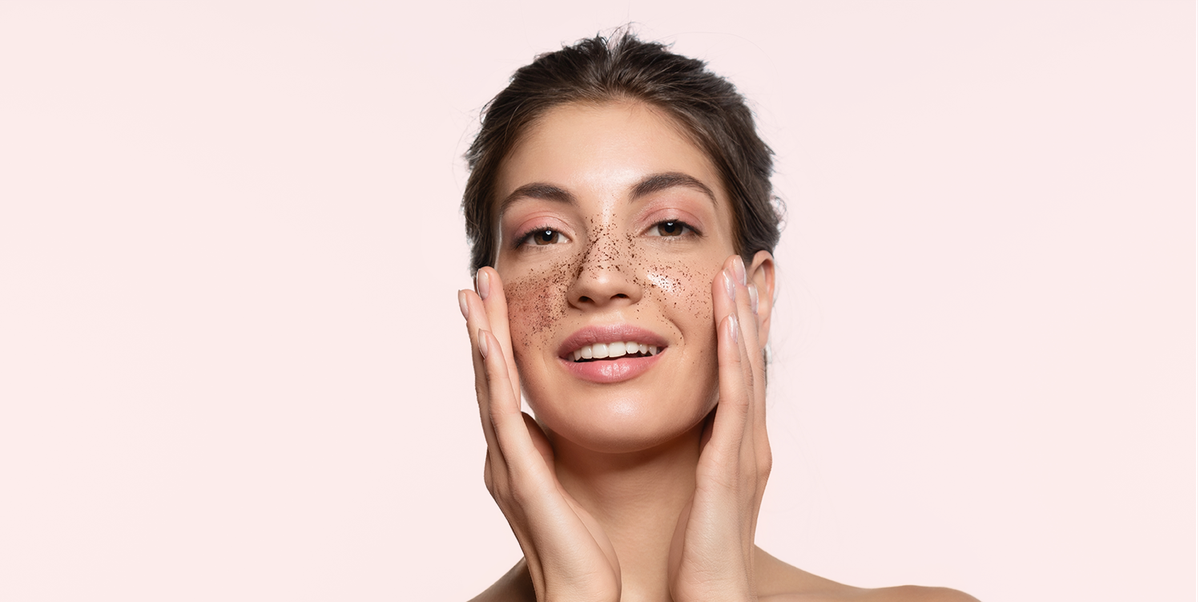Oily skin is a common skin type that is characterized by the excessive production of sebum, the skin's natural oil. To identify whether someone has an oily skin type, a close physical examination is often sufficient. This examination involves assessing several key characteristics, such as the appearance of the skin, pore size, and susceptibility to breakouts. Oily skin tends to have distinct attributes that set it apart from other skin types.
To determine whether someone has an oily skin type, a thorough physical examination is typically sufficient. Oily skin is characterized by excessive sebum secretion, resulting in a shiny appearance and a tendency for breakouts, often accompanied by visibly enlarged pores. It's essential to differentiate it from combination skin, where only the T-zone shares similar characteristics with oily skin.
It's important to note that skin types can vary even in the same person due to factors like climate, diet, lifestyle, medication, specific medical conditions, and hormonal fluctuations.
Understanding Oily Skin

Oily skin may seem like a blessing, as it tends to show fewer wrinkles as individuals age. However, it comes with its unique set of challenges, including:
- Greasy Texture: Oily skin often has a greasy or oily feel.
- Clogged Pores: The excess sebum can lead to clogged pores.
- Enlarged Pores: Oily skin is prone to enlarged pores, which can be aesthetically displeasing.
- Blackheads and Whiteheads: These are common issues associated with oily skin.
- Acne and Breakouts: Oily skin is more susceptible to acne, pimples, and frequent breakouts.
- Product Absorption: Oily skin can have difficulty absorbing skincare products effectively.
Does Oily Skin Require Skincare?

Some individuals with oily skin mistakenly believe that a simple face wash is sufficient, thinking that additional products like moisturizers are unnecessary due to the natural oiliness of their skin. However, it's crucial to understand that the excess oil on the skin is different from the essential ingredients found in proper skincare products, which nourish and improve the skin over the long term.
Regardless of one's skin type, a proper skincare routine is essential for maintaining healthy skin. Oily skin requires attention and care, as it is more susceptible to external impurities like dust and dirt settling on its surface, necessitating thorough cleansing. Cleansing should not strip the skin of all its moisture and natural oils.
The Right Care for Oily Skin
Proper skincare for oily skin includes cleansing, moisturizing, and using products with effective ingredients that penetrate deep into the skin for optimal results. A recommended choice is Awear Beauty’s Superfood Enzyme Cleanser, designed to purify, control sebum, and brighten the skin.
Key ingredients in this cleanser include:
- Sea Buckthorn Extract: This extract is rich in omega fatty acids, vitamin C, antioxidants, and other nutrients, strengthening the skin barrier and providing intense hydration.
- Papaya Extracts: Papaya contains papain, known for its soothing and anti-inflammatory properties, making it suitable for acne-prone skin.
- Mandelic Acid: Mandelic acid's unique structure allows for uniform penetration through lipid-rich areas of the skin.
- Ectoin: Ectoin, derived from single-cell bacteria, helps retain moisture and stabilize the skin barrier.
Characteristics of Oily Skin

- Shiny Appearance: One of the most noticeable characteristics of oily skin is its shine. Oily skin tends to look greasy, particularly on the forehead, nose, and chin, commonly referred to as the T-zone. However, it's important to note that oiliness can extend to other areas of the face as well.
- Enlarged Pores: Oily skin often accompanies visibly enlarged pores. These larger pores are more prone to becoming clogged with sebum, dead skin cells, and other impurities.
- Susceptibility to Breakouts: Oily skin is more prone to acne and breakouts. The excess sebum can mix with dead skin cells and create a breeding ground for acne-causing bacteria.
- Blackheads and Whiteheads: Blackheads (open comedones) and whiteheads (closed comedones) are common issues associated with oily skin. Blackheads occur when pores become clogged and open to the air, while whiteheads are clogged pores that remain closed.
- Greasy Texture: Oily skin often has a greasy or oily texture, which can be uncomfortable and make makeup application more challenging.
Differentiating Oily Skin from Combination Skin
It's important to differentiate between oily skin and combination skin. While oily skin tends to have the characteristics mentioned above across the entire face, combination skin typically exhibits these traits primarily in the T-zone (forehead, nose, and chin). The rest of the face for individuals with combination skin tends to be normal or even dry.
Skin types can vary not only between individuals but also on the same person due to various factors. These factors can include climate, diet, lifestyle, medication, specific medical conditions or illnesses, and hormonal changes. Thus, it's possible for someone to have oily skin during certain periods and experience dry or normal skin at other times.
Oily skin has often been perceived as a "blessing" in terms of aging. It is commonly believed that individuals with oily skin are less likely to develop wrinkles as they age. While there is some truth to this belief, it's essential to understand that oily skin comes with its own set of challenges.
Challenges of Oily Skin
- Greasy Texture: The greasy texture of oily skin can be uncomfortable and make individuals more prone to feeling oily and dirty, particularly in hot and humid conditions.
- Clogged Pores: Excessive sebum production can lead to clogged pores, which not only contribute to acne but can also make the skin's surface appear uneven and bumpy.
- Enlarged Pores: Oily skin is often associated with enlarged pores, which can affect the skin's overall texture and make it appear less smooth.
- Blackheads and Whiteheads: Dealing with blackheads and whiteheads can be frustrating and may require regular maintenance to keep the skin clear.
- Proneness to Acne and Breakouts: Oily skin is more susceptible to acne, pimples, and frequent breakouts, which can have a significant impact on one's self-esteem and confidence.
- Difficulty in Absorption of Skincare Products: The excess sebum on the skin's surface can create a barrier that makes it challenging for skincare products to be absorbed effectively, potentially rendering them less effective.
Given these challenges, it's evident that oily skin requires proper care and attention to maintain its health and appearance. However, a common misconception among people with oily skin is that minimal skincare is required, often thinking that a simple face wash is sufficient. This misconception stems from the belief that the skin is already oily and doesn't need additional products like moisturizers.
Debunking the "Less Is More" Myth for Oily Skin
Contrary to this belief, it's essential to understand that the oiliness on the skin's surface, caused by excess sebum production, is different from the essential ingredients found in proper skincare products. These products serve various purposes, including nourishing, replenishing, and improving the skin's condition over the long term.
Regardless of one's skin type, establishing a comprehensive skincare routine is crucial for maintaining healthy skin. In the case of oily skin, this routine plays a significant role in managing its unique challenges effectively.
Why Oily Skin Deserves Care and Attention
:max_bytes(150000):strip_icc()/Stocksy_txp50fac7707Sf300_Medium_3025860-36988efe44914bd9b7b56887a83403a4.jpg)
Oily skin, like any other skin type, deserves care and attention for several reasons:
- External Impurities: Oily skin has a greater potential for external impurities like dust, dirt, and grime to settle on its surface. These impurities can clog pores and lead to breakouts, emphasizing the importance of thorough cleansing.
- Cleansing Importance: Cleansing is a critical aspect of skincare for oily skin. Effective cleansing helps remove excess oil, dirt, and impurities, promoting clearer and healthier skin. However, cleansing should not strip the skin of all its moisture and natural oils, as this can lead to overcompensation in sebum production.
- Balancing Act: The right skincare products for oily skin can help balance sebum production, minimize pore size, and prevent clogged pores. These products can also address specific concerns like blackheads and whiteheads.
- Long-Term Health: Just as with any other skin type, proper skincare for oily skin promotes its long-term health and resilience. Well-maintained skin is less prone to issues like premature aging, inflammation, and sensitivity.
The Right Care for Oily Skin

To provide the right care for oily skin, it's essential to use skincare products with ingredients that are not only effective but also compatible with oily skin's unique characteristics. Opting for formulations that can penetrate deep into the skin and address specific concerns is key to achieving the best results.
An excellent choice for those with oily skin is Awear Beauty’s Superfood Enzyme Cleanser. This product is designed to not only cleanse the skin but also care for it during the cleansing process. It incorporates a range of key ingredients that cater to oily skin's needs:
- Sea Buckthorn Extract: This extract is rich in omega fatty acids, providing intense hydration and strengthening the skin barrier. Additionally, it contains a wealth of antioxidants, including vitamin C, making it ideal for maintaining skin health.
- Papaya Extracts: Papaya contains papain, which possesses soothing and anti-inflammatory properties. This makes it an excellent ingredient for oily and acne-prone skin, as it can help reduce skin irritations.
- Mandelic Acid: Mandelic acid has a unique chemical structure that allows for uniform penetration through lipid-rich areas of the skin. This acid is beneficial for oily skin as it can exfoliate the skin's surface, reducing clogged pores and promoting a smoother texture.
- Ectoin: Ectoin is a naturally occurring compound derived from single-cell bacteria found in extreme environments. In skincare, it is valued for its ability to bind water and reduce transepidermal water loss. This helps lock in moisture and stabilize the skin's barrier.
Maintaining Skin Health and Radiance
In conclusion, oily skin deserves care and attention, just like any other skin type. While it does come with its set of challenges, these can be effectively managed with the right skincare products and routine. By selecting formulations that cater to oily skin's unique characteristics and concerns, individuals can maintain the health and radiance of their skin.
Proper skincare for oily skin encompasses a comprehensive approach, from cleansing to moisturizing, and includes targeted products that address specific issues such as enlarged pores and breakouts. It's essential to debunk the misconception that minimal skincare is sufficient for oily skin and recognize the importance of a well-rounded skincare routine.
Through a combination of effective ingredients and consistent care, individuals with oily skin can enjoy the benefits of healthier, clearer, and more balanced skin. Ultimately, embracing a proper skincare routine is a step toward achieving skin that not only looks good but also feels good, regardless of one's skin type.
Conclusion: Navigating the Complexities of Oily Skin
In conclusion, understanding the intricacies of oily skin is paramount for effective skincare. Oily skin's defining features include excessive sebum production, a shiny appearance, enlarged pores, and heightened vulnerability to breakouts. It is essential to distinguish oily skin from combination skin, where the T-zone mirrors oily skin characteristics while other areas may be normal or dry.
Despite the challenges it presents, oily skin should not be neglected. It deserves the same level of care and attention as other skin types due to its susceptibility to external impurities, the importance of thorough cleansing, the need to balance sebum production, and the promotion of long-term skin health. Proper care for oily skin involves choosing skincare products with ingredients that penetrate deeply, addressing specific concerns while preserving moisture and hydration. One exceptional choice is Awear Beauty’s Superfood Enzyme Cleanser, which harnesses the benefits of sea buckthorn extract, papaya extracts, mandelic acid, and action to cleanse, soothe, exfoliate, and lock in moisture.



